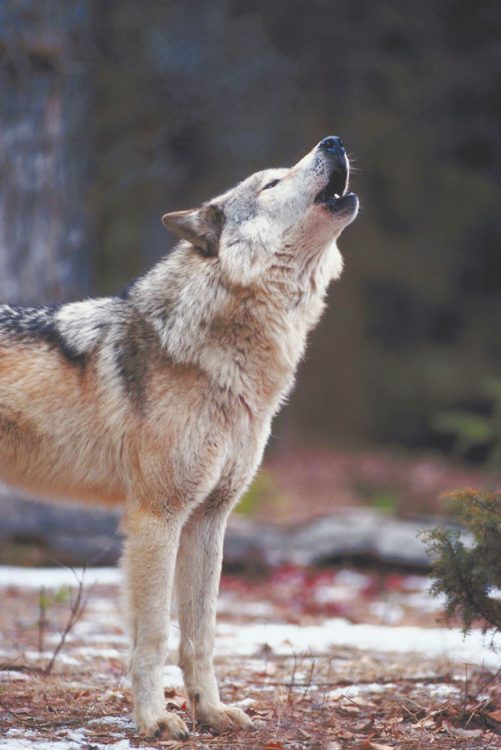
Protect The Wolves® would like to express our Thanks to Dr. Robert Wielgus, and further let him know that his invitation to sit on our Board of Directors still Stands Today! Unlike Donny Martorello who extends an invitation and then pulls it back claiming he said no such thing. Donnys error was the fact that there were multiple people listening to our Phone Conversation!!
Press Release: Wolf livestock depredations in WA & Profanity Peak Pack
Dr. Robert Wielgus – Director Large Carnivore Conservation Lab 03/27/17
This Press release was written by Dr. Wielgus as a private citizen and does not express the positions of Washington State University.
Four years ago the Washington State Legislature tasked and funded me to determine 1.) the extent of wolf livestock depredations in WA, 2.) possible contributing factors, and 3.) possible mitigating factors – to reduce livestock depredations in WA.
Here are the verifiable facts concerning wolf livestock depredations obtained from my WSU radio-telemetry data of wolves and livestock, date and time stamped video records of wolves and livestock, and public records from the Washington Department of Fish and Wildlife*.
- Using intensive radio-telemetry of livestock overlapping wolf home ranges: among 11 different cooperating herds studied over 2 years – zero of 764 radio-tagged livestock were killed by wolves. Among this sample of cooperating ranchers, fewer than 1% of estimated livestock losses were due to wolf depredations.
- Using extensive radio-monitoring of 5 wolf packs monitored over 3 years (15 wolf pack years) and examination of 444 wolf kill sites: 9 of 15 packs had zero wolf livestock kills at 444 kill sites and 3 of 15 packs had < 5% livestock kills. For the remaining 3 packs with more than 5% kills, one had 16% and another had 23% – and sheep comprised most of these kills. The Profanity Peak pack had 67% livestock kills. Among this sample of wolf packs, including the Profanity Peak outlier, fewer than 7% of wolf kills were livestock.
- Re: the numerous livestock depredations by the profanity Peak Pack. Using radio-telemetry and date and time stamped video surveillance, livestock were documented to be concentrated in the immediate vicinity of the Profanity pack den and rendezvous site. Salt blocks were also observed within 200 meters of the den. Several days after livestock arrived at the den-site, wolves began depredating the livestock, and numerous livestock were eventually killed by wolves. After failure of subsequent non-lethal interventions to deter livestock depredations the wolf pack was lethally controlled.
- Re; Preventative measures taken in the Profanity Peak Pack. The rancher involved did not sign and abide by the terms of a Washington Department of Fish and Wildlife Cooperative Damage Prevention Agreement* prior to lethal control of wolves. (See Profanity Peak Post Action report, Appendix 1, Wolf-Livestock Conflict Prevention/Reduction Activities and Associated Expectations, “Avoiding Den and Rendezvous Sites” See paragraph 4, page 14 http://wdfw.wa.gov/conservation/gray_wolf/packs/files/ProfanityPeakPostAction_2016.pdf ). Using radio-telemetry and date and time stamped video surveillance, cattle remained in high use wolf core areas (den and rendezvous site) during the depredations and salt blocks remained in these areas until after lethal control of wolves began. Cattle remained in high use wolf core areas before, during and after wolf lethal control actions.
In summary, wolf livestock depredations were not widespread and chronic in wolf-occupied areas of Washington. Instead, wolf livestock depredations appear to be rare and acute, with multiple depredations occurring in particular situations, such as described for Profanity Peak.
These results were reviewed by WSU graduate committees, independent outside members of the committees, the Washington Department of Fish and Wildlife, and the Director of the School of Environment at WSU. Raw data and observations were shared with the Washington Department of Fish and Wildlife. These results will be submitted for publication in peer-reviewed scientific journals in summer 2017.
I recommend to WDFW, the WAG, and ranchers in WA to sign, and/or abide by the terms of the WDFW Cooperative Damage Prevention Agreements to reduce wolf livestock depredations. Failing that, I recommend that WDFW consider that future lethal control of wolves on public lands, for livestock depredations on public lands, be conducted only on behalf of ranchers that sign and/or abide by the terms of a Washington Department of Fish and Wildlife Cooperative Damage Prevention Agreement – in order to provide further incentives for non-lethal preventative measures. These recommendations could prevent similar events as happened in fall 2016 and in previous years.
I wish to thank all the cooperating and non-cooperating ranchers in Washington, the Washington State Legislature, and my research partners at WDFW, USFS, USFWS, and Colville Confederated Tribes that made this research possible.
*Signatories to Damage Prevention agreements have access to den site location and are expected to avoid such areas if possible.
Agreements are tailored to individual producer situations, including availability of alternative grazing sites to avoid core wolf activity centers (pup-rearing den and rendezvous sites) and WDFW-radio-collared wolf monitoring information.
Landowners agree to share information regarding wolf activity, livestock behavior, and preventive actions taken, and to allow WDFW staff access to lands owned or controlled for livestock production.
Livestock producers interested in Damage Prevention Cooperative Agreements can contact their local WDFW Wildlife Conflict Specialist, Regional Office, or the wildlife conflict program manager Stephanie Simek at 360-902-2476 or Stephanie.Simek@dfw.wa.gov. Producers will meet with WDFW wildlife conflict specialists currently deployed to cover their area.
Contact Info: Wielgus@wsu.edu
Comments
Thanks Dr Wielgus ????❤??
thank you so much for caring